Does marble scratch easier than quartzite? Which is harder – granite or quartzite? Why the hardness of a natural stone is considered while buying the stone? To get the answers to all these questions, it is necessary to understand what does the hardness of a natural stone means and what the ways to measure it are.
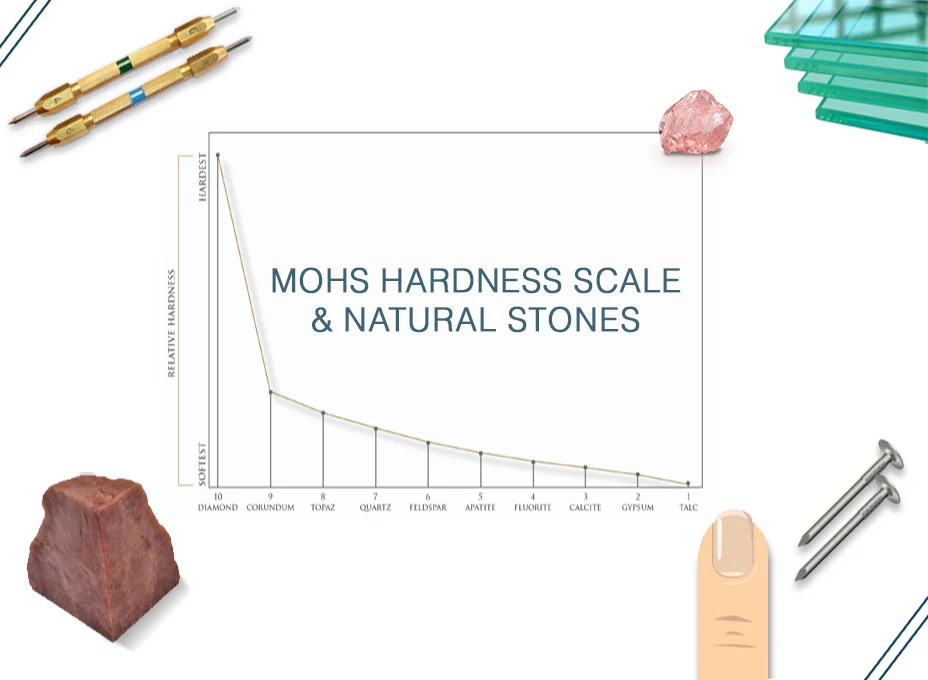
Though the use of natural stones is quite common in both residential and commercial architecture, most people prefer to use them due to their visual characteristics and durability. And, when it comes to finding the reasons behind their durability, their hardness emerges as the most important element to consider. For example, granite is known to be one of the hardest natural stones available today for people.
How hardness is measured?
The hardness of any mineral is calculated on a scale of 1 to 10 which is called the Moh’s scale. This scale was designed by German mineralogist Friedrich Mohs in the year 1812, and rates minerals based on their capability to scratch or withstand scratches. A rank of 1 means the mineral is extremely soft, while a ranking of 10 refers that it is extremely hard.
The Mohs scale of hardness works on a mineral’s ability to scratch another mineral noticeably. The samples of matter used by Mohs are all various minerals. Minerals refer to chemically genuine solids discovered in nature. Rocks are comprised of one or more minerals. Being the hardest known naturally occurring material, diamonds emerge at the top of the scale. The hardness of a material is gauged against the scale by discovering the hardest object that the selected material can scratch, or the softest thing that can scratch the same material.
The hardness of Natural Stones
In the natural stone industry, particularly in commercial construction, the hardness of a natural stone matters a lot. It is one of its abilities that play a decisive role in selecting or rejecting the stone. For Indian sandstone suppliers, limestone exporters, marble exports, Mohs scale is undeniably the most widely chosen approach to test a material’s hardness.
Below is the hardness score of different natural stones on the Mohs Scale.
STONE COUNTERTOPS: MOHS SCALE RANKINGS
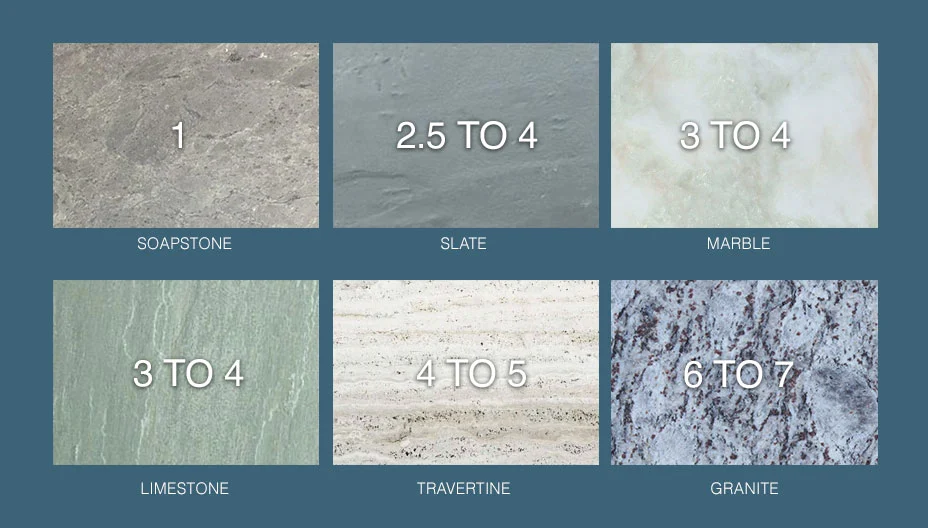
From the above table, it gets clear that granite with a score of 6 to 7 is one of the hardest natural stones trailed by diamond, which has a score of 10. For projects that demand a tougher surface, granite is undoubtedly the best choice.
Granite Hardness
Most products are effectively resistant to etch or stain, but some may scratch, particularly the ones that contain black minerals known as mica or schist, such as Nova Black, Black Marine, and Black Beauty. A leather or honed surface finish is found to reduce scratch-related issues to much extent. Some black granite such as Impala Black is rich in mica and therefore scratch easier.
Marble Hardness
Marble, for example, is a comparatively soft stone. Its hardness, as per the Mohs scale, stands at nearly 3 – slightly harder than alabaster or gypsum. This is why marble also emerges as a great natural stone choice for sculpting purposes. Besides marble, travertine also features a hardness of 3. A copper penny would be strong enough to scratch such natural stones!
Basalt
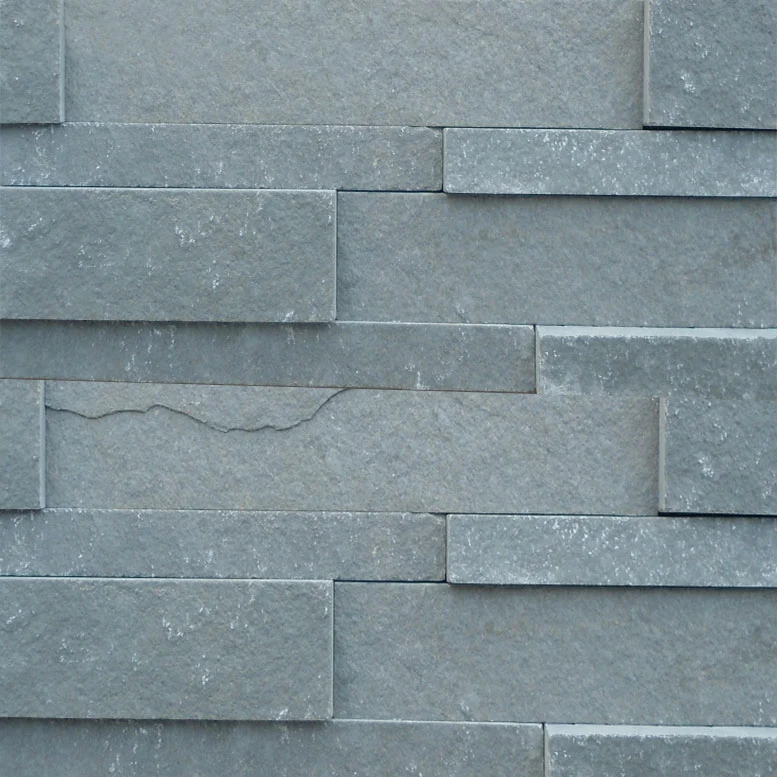
On the other hand, Basalt is a lot harder stone. It attains a hardness of a minimum of 6, often 7 Mohs, and it is so sturdy that metal equipment is required to work with it. Another option in the same category in terms of hardness is andesite.
Quartzite
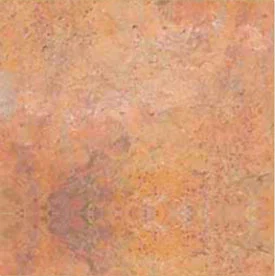
Many natural stones are made up of quartz and this is why they won’t scratch at all. However, there are a few variants that are known to absorb water and other fluids. Almost all natural stone suppliers apply sealants that protect the material from absorbing water.
Sandstone
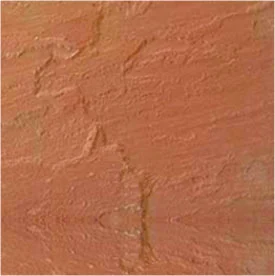
Being a sedimentary rock, sandstone is known to be found in sedimentary basins all across the world. It features a hardness score of 6 to 7 on the Mohs scale and conchoidal fractures are there.
Which natural stone is a good choice in terms of hardness?
In the case of a natural stone, the decision could be a bit of a trade-off as it would be based on your needs, panache, and taste against the performance. This is when you decide what you are ready to compromise on. If you’re a perfectionist and want that white tabletop looking like new for years – but have your heart set on Alaska White Marble – it is better to choose a quartzite in its place. The best thing about natural stones is that they come in a wide range of choices.
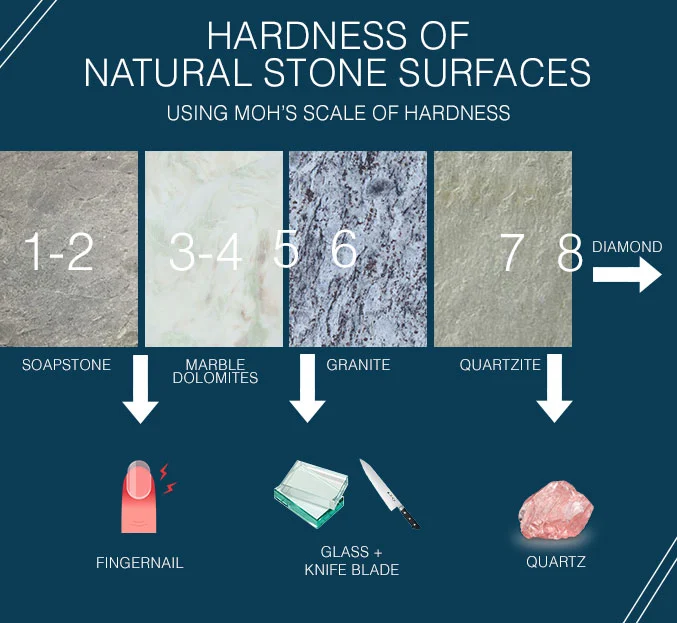
So, whatever application you want to use natural stone on, there are specific products available for the same. From flooring to wall cladding, countertops, and others, there is a great variety of products available for the same. And, one thing that can’t be denied is that it is the superb hardness of natural stones that make them a wonderful choice for modern construction. Both Indian sandstone and granite are known for their superior level of hardness and durability and this makes Indian natural stones the most sought-after choice for architectural projects worldwide.
